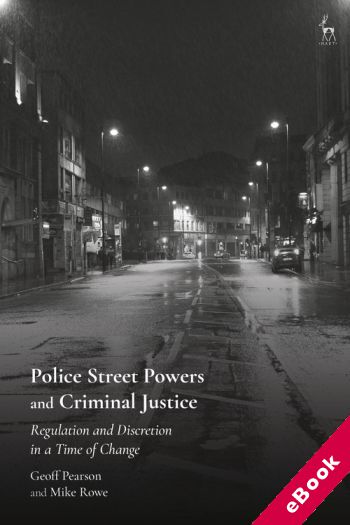
The device(s) you use to access the eBook content must be authorized with an Adobe ID before you download the product otherwise it will fail to register correctly.
For further information see https://www.wildy.com/ebook-formats
Once the order is confirmed an automated e-mail will be sent to you to allow you to download the eBook.
All eBooks are supplied firm sale and cannot be returned. If you believe there is a fault with your eBook then contact us on ebooks@wildy.com and we will help in resolving the issue. This does not affect your statutory rights.
This book examines the outcomes of a five-year ethnographic study of two North of England police forces; the prism through which to revisit the question of the regulation and legitimacy of police powers. Central to this study is the degree to which discretion still plays a central role in the exercise of these powers. It shows how this reliance on discretionary powers is fraught with difficulty. The authors demonstrate that in order to effectively reform the exercise of these powers, the police service should be regarded as having a unique culture, where change and uncertainly are commonplace. It is only by recognising the unusual working practises of policing, can meaningful reform be achieved; making this book required reading for policy makers in the field of criminal justice.